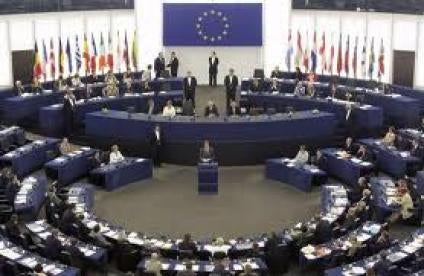On November 6, the Committee on International Trade (INTA) of the European Parliament will have a first exchange of views on the proposal presented in March by the European Commission (EC) on “Minerals originating in conflict affected and high risk areas.” This is the European Union version of the so-called Dodd-Frank 1502 legislation in the United States, which, as of May of this year, imposes reporting obligations to end users of “conflict minerals” originating from the Great Lakes region in Central Africa.
The Commission proposal did not make too many waves when it was presented as it was essentially suggesting a non-binding regime, imposing no obligation to the end user. The draft regulation suggested a European Union system of self-certification for importers of tin, tantalum, tungsten, and gold who would choose to import “responsibly” into the Union. Importers would be required to exercise “due diligence” by monitoring and administering their purchases in line with the relevant Organisation for Economic Co-operation and Development (OECD) guidelines. To increase public accountability, a list of “responsible smelters and refiners” would be set up every year. Companies selling products containing these minerals would receive public procurement incentives while SMEs and the OECD would get financial support.
If the products covered are the same as those covered by Dodd Frank 1502, the geographical scope proposed by the European Commission is radically different. The scope covers all “conflict zones” in the world, not only the Great Lakes region. The Commission judged that focusing on a specific region would be politically difficult to justify and maintained that the global approach would not be overly problematic as the regime was voluntary. If the regulation had been made mandatory and reporting obligations had been imposed to the end users, it would raise new and complex questions, as was the case with the U.S. Securities and Exchange Commission’s implementation of Dodd Frank 1502.
Even if it was strongly criticized for its “lack of ambition” by a coalition of rights groups, including Global Witness and Amnesty International, the proposal is not likely to be changed by the new Juncker Commission; Cecilia Malmström, the new Trade Commissioner, and the Commissioner in charge of Development Neven Mimica, both confirmed at their hearing in the Parliament in October that they would stick to the voluntary regime proposed by Commissioner De Gucht.
In the European Parliament, echoing the reaction of the NGO coalition, many criticisms can be heard about this proposal. It is likely that serious attempts will be made to make the European regime mandatory, as is Dodd Frank but in this case, it would be applicable all over the world.
The first efforts in the Parliament will aim at widening the discussion. The Green Group has already asked that the proposal be not only under the competence of the Trade Committee but also the Development and the Foreign Affairs Committee. They have also challenged the legal basis, currently a Trade article, to have it based on articles relating to Development Co-ooperation.
The debate starts this week and will set the tone for further work. A hearing is already announced for the beginning of December in the Trade and Development Committees. The discussion is likely to continue next year until a consolidated Parliament position can be confronted with a “general approach” of the Council. The legislation indeed needs to be adopted in “co-decision” by the Parliament and the Council. Discussion in the Council will start soon under the Italian Presidency.




 i
i

